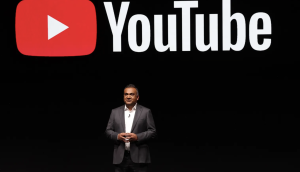As new legislation takes effect regulating election advertising for social media companies in Canada, Twitter has banned political ads in the run-up to the October federal election, but will allow them during the campaign.
From June 30 until the day the election is officially called, Twitter will “prohibit” regulated political ads in Canada from parties and candidates, according to a blog post written by Michele Austin, head of government, public policy and philanthropy for Twitter Canada, on the company’s website.
Earlier this month, Bill C-76, the Elections Modernization Act, took effect, adding new rules around online advertising to the Election Act requiring social media companies to keep a registry of political ads from both the “pre-writ” period (June 30 until the writ of elections is dropped, no more than 50 days) and during the election campaign. The goal of changes are to help Canadian voters have clarity and stay informed about where information, including information presented in political ads, comes from.
Austin, in her post, said Twitter has been in communication with the Government of Canada, Elections Canada and the Commissioner of Canada Elections and “welcome the clarity” the new legislation lays out. During the pre-writ period, Austin said, “policy and enforcement teams will be building the necessary infrastructure and product support” to be able to comply with the new rules ahead of what she called the “critical election period.”
Last year in the U.S., Twitter created The Political Campaigning Policy, which provides people access to information regarding ad spend and targeting demographics. Alongside the policy, Twitter also created The Ads Transparency Center (ATC); and when the writ drops in Canada, Twitter will allow regulated political ads and issue advocacy ads, catalogued in the ATC.
But, the legislation has created significant challenges for online media publishers and platforms, says IAB Canada president Sonia Carreno, even setting the industry back. “There are virtually no programmatic avenues available to political advertisers that fall outside of pre-arranged, high touch bookings,” she tells MiC.
Issue advertising is particularly challenging, because as political platforms evolve, it is hard to predict just what falls under regulation, Carreno points out. “Elections Canada is not currently digitally wired to provide live listings of issues that are regulated, and this puts the onus on platforms to monitor each and every piece of creative that runs through their channel throughout the election period.”
Google and Microsoft have both banned political ads from their platforms in response to the new rules, saying it would be too complicated to set up the registries. Facebook has said it will accept ads and plans to be compliant with the new rules.
In her blog post, Austin said the company “firmly believe voters must be provided with more context around the ads they see on our service and how we enforce our policies.” In a tweet, Twitter Canada said “serving the public conversation is our singular mission” and that updates would be provided throughout the summer.























